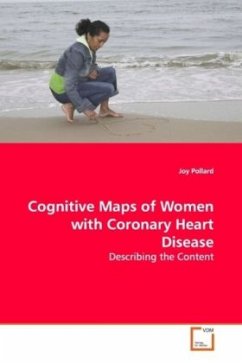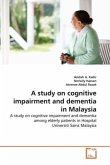Soon an estimated 40 million persons over the age of
65 will be diagnosed with heart disease in the United
States. This will have a profound impact on American
women, as heart disease is more prevalent in women in
this age group and their prognosis is worse than for
men. There has been a lack of understanding about the
mechanisms that women employ to respond to heart
disease and health care interactions. Cognitive Maps
and Illness Representations theoretically grounded
this research about women and heart disease. Findings
lead to a better understanding of stimuli integration
and revealed the importance of emotion and societal
expectations on women's heart disease
representations. This book therefore provides a new
a dual processing model of cognitive and emotional
representations. Those interested in the impact of
internal and external stimuli on health and health
behaviors will find this book helpful to develop a
new way to frame their understanding, that
integrates cognition, emotion, and societal impact.
65 will be diagnosed with heart disease in the United
States. This will have a profound impact on American
women, as heart disease is more prevalent in women in
this age group and their prognosis is worse than for
men. There has been a lack of understanding about the
mechanisms that women employ to respond to heart
disease and health care interactions. Cognitive Maps
and Illness Representations theoretically grounded
this research about women and heart disease. Findings
lead to a better understanding of stimuli integration
and revealed the importance of emotion and societal
expectations on women's heart disease
representations. This book therefore provides a new
a dual processing model of cognitive and emotional
representations. Those interested in the impact of
internal and external stimuli on health and health
behaviors will find this book helpful to develop a
new way to frame their understanding, that
integrates cognition, emotion, and societal impact.








